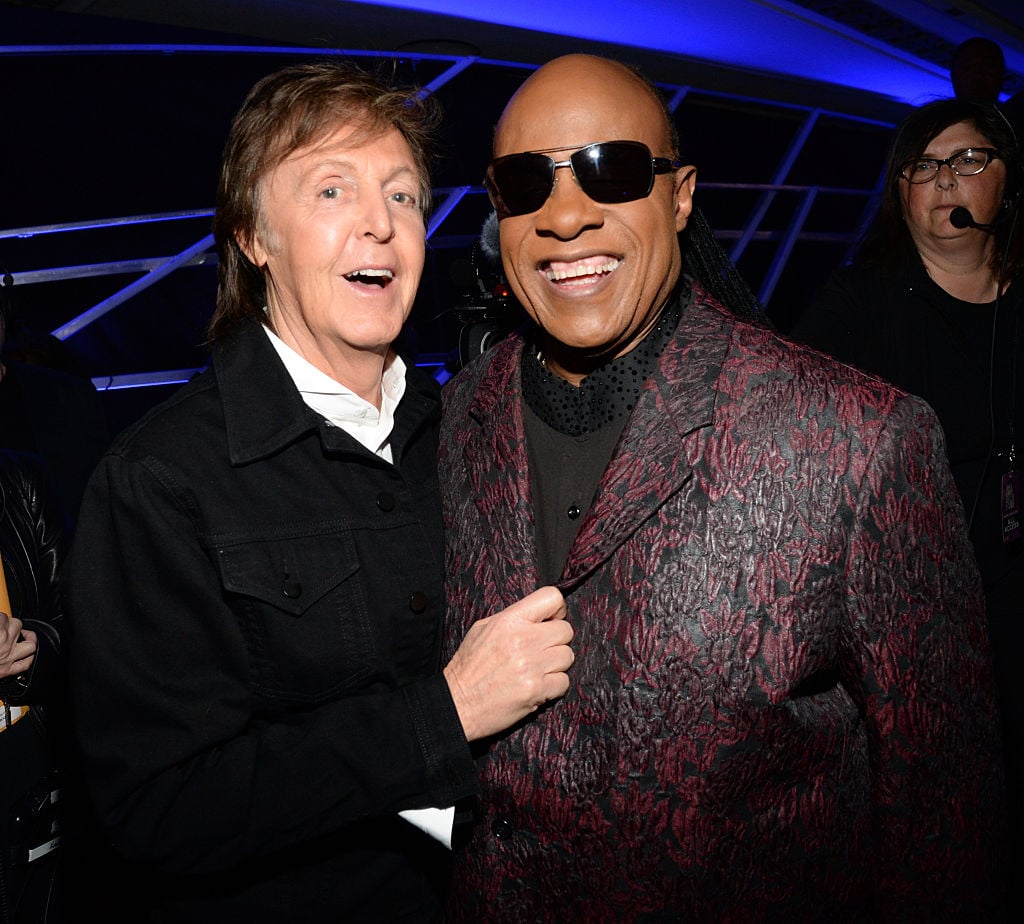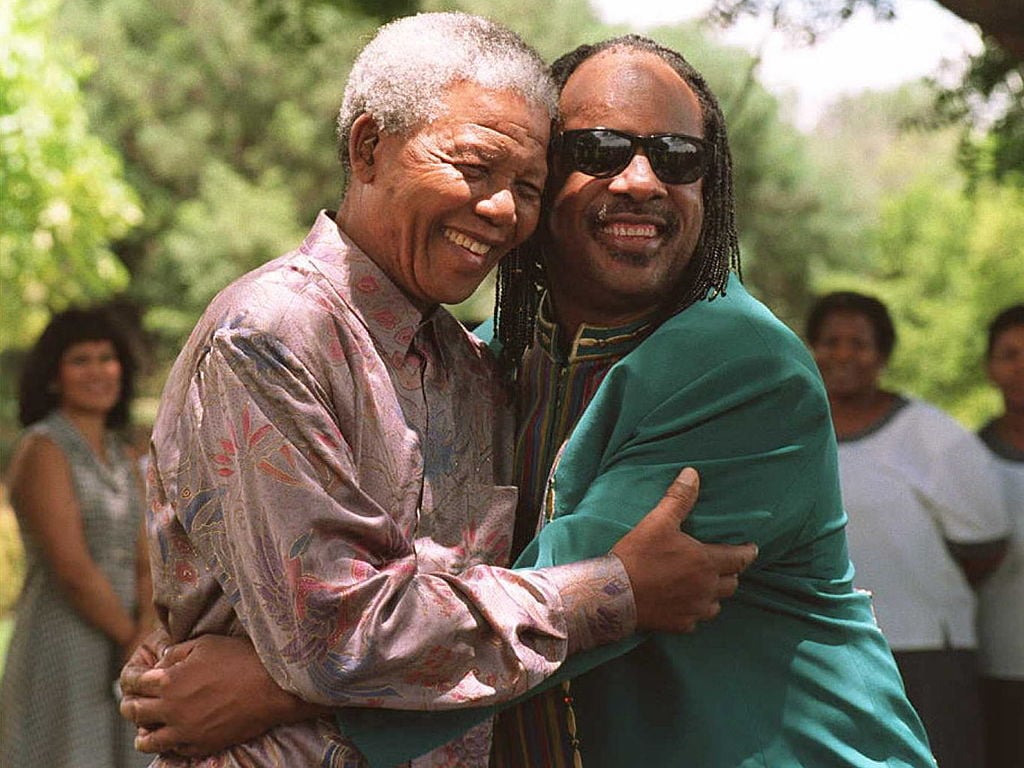Why Paul McCartney’s ‘Ebony and Ivory’ Got Banned in South Africa
“Ebony and Ivory” is both one of Paul McCartney’s most famous songs and one of Stevie Wonder’s. Its message of racial harmony remains as relevant as ever. The song has received plenty of criticism from Paul and Wonder’s fans over the years for supposedly being kitschy, but those fans don’t decry its message.
However, the song was actually banned in South Africa in the 1980s. The song itself wasn’t the reason the South African government banned the track. The government was upset at Wonder for taking a noble stand.

The creation of Paul McCartney and Stevie Wonder’s ‘Ebony and Ivory’
“Ebony and Ivory” was included on Paul’s album Tug of War — an album which features three duets with other artists. Paul told NME the album was “cast like [a film], except using musicians instead of actors.” Wonder was certainly more famous than many of the movie stars of the day!
Paul has fond memories of the track’s creation. “I wanted Stevie… I was just reaching. It was just, you know, if you could have anyone. We had a good time. We were all out on Montserrat, and we had a good time.”
According to The Hollywood Reporter, Wonder was drawn to the song because of its message of racial equality. “I listened to the song, and I liked it very much. … it was positive for everybody. I won’t say it demanded of people to reflect upon it, but it politely asks the people to reflect upon life in using the terms of music … this melting pot of many different people.”
“Ebony and Ivory” was actually the product of four different famous musicians. In addition to Paul and Wonder, Isaac Hayes can be heard on the song. Hayes, the singer of the iconic “Theme from Shaft” and the voice actor behind Chef from South Park, provided backing vocals for the song. The other legendary musician to work on the song was George Martin, the producer behind many of the Beatles’ most beloved songs. What a quartet of musicians!
Why ‘Ebony and Ivory’ was banned in South Africa

“Ebony and Ivory” got released in 1982. However, The New York Times reports the song didn’t get banned in South Africa until 1985. The track got banned all because of a remark Wonder made when he accepted an Academy Award.
Wonder composed ”I Just Called to Say I Love You” for a film titled The Woman in Red. The hit song won him the Academy Award for Best Original Song. During Wonder’s acceptance speech, he dedicated the award to Nelson Mandela. At the time, Mandela was in prison and South Africa was still an apartheid state. Therefore, Wonder’s comment caused the South African Broadcasting Corporation, which was government owned and controlled all television and radio programming in the country, to ban “Ebony and Ivory.”
Years later, apartheid fell and Mandela became the country’s president. The New York Times reports Wonder got to perform during Mandela’s 91st birthday celebration in 2009, where he sung his song “Happy Birthday,” which was originally written in honor of Dr. Martin Luther King. It was a fitting tribute to a human rights icon.
Also see: Michael Jackson: Quincy Jones Said His Stevie Wonder Duet ‘Didn’t Work’


